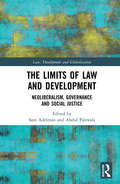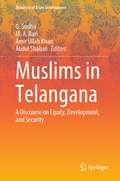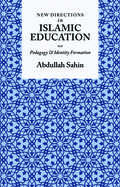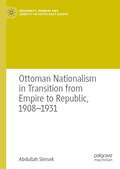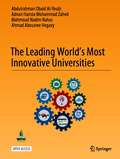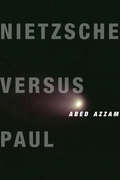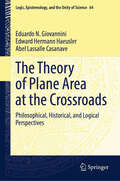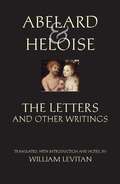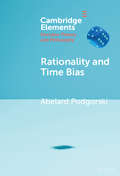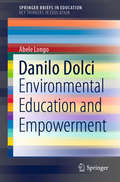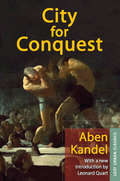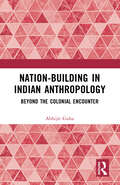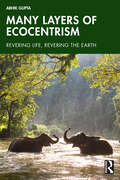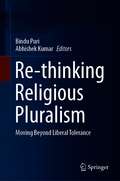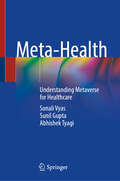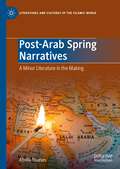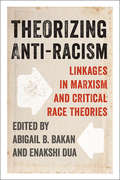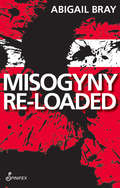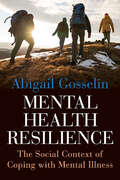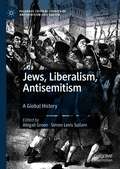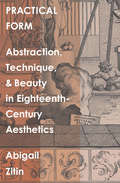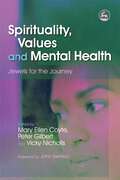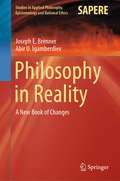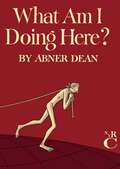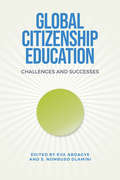- Table View
- List View
The Limits of Law and Development: Neoliberalism, Governance and Social Justice (Law, Development and Globalization)
by Abdul Paliwala Sam AdelmanThe book examines the well-established field of ‘law and development’ and asks whether the concept of development and discourses on law and development have outlived their usefulness.The contributors ask whether instead of these amorphous and contested concepts we should focus upon social injustices such as patriarchy, impoverishment, human rights violations, the exploitation of indigenous peoples, and global heating? If we abandoned the idea of development, would we end up adopting another, equally problematic term to replace a concept which, for all its flaws, serves as a commonly understood shorthand? The contributors analyse the links between conventional academic approaches to law and development, neoliberal governance and activism through historical and contemporary case studies.The book will be of interest to students and scholars of development, international law, international economic law, governance and politics and international relations.
Muslims in Telangana: A Discourse on Equity, Development, and Security (Dynamics of Asian Development)
by Abdul Shaban G. Sudhir M. A. Bari Amir Ullah KhanThis book analyses the state of development of Muslims at the regional level. It explains the linkages between the findings of global, national, and state-level studies with regard to the current status of Muslims and broadens understanding of Muslims and their participation in virtually all major sectors, including the economy, housing, demography, health, migration, state policy, and affirmative action. The book presents the challenges faced by the community and reflects upon the socio-economic and educational conditions of Muslims in Telangana State. It presents a comparative analysis of mortality data, maternal health, delivery care, and child immunization, as well as reproductive health aspects and children’s nutritional status. It shares valuable insights into the impacts of emigration and internal migration on health among local Muslims and presents a detailed analysis of data from the Census of India, NSSO, and Commission of Inquiry on Socio-Economic and Educational Status of Muslims regarding the social, economic, and demographic situation of Muslims in Telangana, as well as their opportunities for development under the newly formed state government. The book would be of great interest to scholars and researchers in development economics, sociology, politics, history, cultural studies, minority studies, Islamic studies, and policy studies, as well as policymakers, civil society activists, and those working in media and journalism.
New Directions in Islamic Education
by Abdullah Sahin"This ground-breaking book is one of the most significant contributions made in recent years to Islamic education."-John M. Hull, University of Birmingham, United KingdomNew Directions in Islamic Education is a radical rethinking of Islamic education in the modern world. It explores the relationship between pedagogy and the formation of religious identities within Islamic education settings that are based in minority and majority Muslim contexts.Dr. Abdullah Sahin directs the Centre for Muslim Educational Thought and Practice and is the course leader for the MEd program in Islamic Education at MIHE in Leicestershire, United Kingdom.
Ottoman Nationalism in Transition from Empire to Republic, 1908–1931 (Modernity, Memory and Identity in South-East Europe)
by Abdullah SimsekThis book deals with the complex process of national identity formation in the late Ottoman Empire and early Turkish Republic, during a crucial period characterized by transformative events that reshaped both the state and society. These events included revolutions, wars, mass migrations, ethnic cleansing, genocide, the empire's disintegration, territorial and demographic changes, and the emergence of new states. In the face of these events, a multitude of old and new formulations and imaginings of nation and national identity took shape and interacted with each other. This book focuses on highlighting the diversity of concepts and trajectories that existed during the period and how these played out within a complex web of inclusionary and exclusionary processes, and the various ways in which the nation was constituted and conceptualized.
The Leading World’s Most Innovative Universities
by Abdulrahman Obaid AI-Youbi Adnan Hamza Zahed Mahmoud Nadim Nahas Ahmad Abousree HegazyThis open access book is unique in its contents. No other title in the book market has tackled this important subject. It introduces innovation as a way of practice for world-class universities. It, then, discusses the criteria for being innovative in the academic world. The book selects some of the top innovative world-class universities to study the factors that qualified them to be innovative, so that any other university can follow their steps to become innovative. The final chapter of the book presents some recommendations in this regard.
Nietzsche Versus Paul (Insurrections: Critical Studies in Religion, Politics, and Culture)
by Abed AzzamAbed Azzam offers a fresh interpretation of Nietzsche's engagement with the work of Paul the Apostle, reorienting the relationship between the two thinkers while embedding modern philosophy within early Christian theology. Paying careful attention to Nietzsche's dialectics, Azzam situates the philosopher's thought within the history of Christianity, specifically the Pauline dialectics of law and faith, and reveals how atheism is constructed in relation to Christianity.Countering Heidegger's characterization of Nietzsche as an anti-Platonist, Azzam brings the philosopher closer to Paul through a radical rereading of his entire corpus against Christianity. This approach builds a compelling new history of the West resting on a logic of sublimation, from ancient Greece and early Judaism to the death of God. Azzam discovers in Nietzsche's philosophy a solid, tangible Pauline structure and virtual, fragile Greek content, positioning the thinker as a forerunner of the recent "return to Paul" led by Badiou, Agamben, i ek, and Breton. By changing the focus of modern philosophical inquiry from "Nietzsche and philosophy" to "Nietzsche and Christianity," Azzam initiates a major challenge to the primacy of Plato in the history of Western philosophy and narrow certainties regarding Nietzsche's relationship to Christian thought.
The Theory of Plane Area at the Crossroads: Philosophical, Historical, and Logical Perspectives (Logic, Epistemology, and the Unity of Science #64)
by Edward Hermann Haeusler Eduardo N. Giovannini Abel Lassalle CasanaveThis book explores a cluster of philosophical, historical, and logical problems concerning the foundations of the theory of plane area in elementary geometry. The motivation of this study is a notable geometrical proposition known as De Zolt’s postulate, which asserts that a polygon cannot be equal in area to a proper polygonal part. The book is the first systematic investigation of the philosophical and foundational significance of this proposition, which can also be described as the “fundamental theorem” of the theory of plane area. This volume provides a comparative study of Euclid’s development of the theory of area in the Elements and its modern reinterpretation in Hilbert’s classical monograph Foundations of Geometry. It connects the historical reflections on De Zolt’s postulate with the nineteenth-century program of providing a purely geometrical foundation for Euclidean geometry, uncovering a rich array of intertwined conceptual problems. It also shifts the perspective and provides a logical analysis of this geometrical postulate within an original development of the abstract theory of magnitudes, called compatible magnitudes. Finally, it extends the previous formal treatment of De Zolt’s postulate to the case of three-dimensional geometry by producing a type system for polyhedral geometrical mereology. The innovative combination of philosophical, historical, and logical perspectives results in a novel discussion of a fascinating problem at the crossroads of (late) nineteenth-century geometry. This volume will interest readers in the fields of history and philosophy of mathematics, logic, and formal philosophy.
Abelard and Heloise: The Letters and Other Writings
by Heloise Stanley Lombardo William Levitan AbelardThe most comprehensive compilation of the works of Abelard and Heloise ever presented in a single volume in English, The Letters and Other Writings features an accurate and stylistically faithful new translation of both The Calamities of Peter Abelard and the remarkable letters it sparked between the ill-fated twelfth-century philosopher and his brilliant former student and lover--an exchange whose intellectual passion, formal virtuosity, and psychological drama distinguish it as one of the most extraordinary correspondences in European history. Thanks to this edition, Latin-less readers will be better placed than ever to see why this undisputed milestone in the intellectual life of medieval France is also a masterpiece of Western literature.In addition to the The Calamities and the letters--the first complete English translation of all seven in more than eighty years--this volume includes an Introduction, a map, and a chronology, Abelard's Confession of Faith, letters between Heloise and Peter the Venerable, the Introduction to The Questions of Heloise, and selected songs and poems by Abelard, among them a previously untranslated shaped poem, Open Wide Your Eyes. Extracts of lost letters sometimes ascribed to Abelard and Heloise are given in appendixes.
Rationality and Time Bias (Elements in Decision Theory and Philosophy)
by Abelard PodgorskiWe often care not only about what happens to us, but when it happens to us. We prefer that good experiences happen sooner, rather than later, and that our suffering lies in our past, rather than our future. Common sense suggests that some ways of caring about time are rational, and others are not, but it is surprisingly challenging to provide justifying explanations for these tendencies. This Element is an opinionated, non-technical guided tour through the main philosophical issues about the relevance of the temporal location of our experiences to our desires and our choices, and the major arguments for and against different kinds of so-called time bias.
Danilo Dolci: Environmental Education and Empowerment (SpringerBriefs in Education)
by Abele LongoThe book presents the multi-faceted opus of Danilo Dolci within the framework of Environmental Education, focusing on his work as a grassroots community educator, nonviolent activist and poet. It illustrates Dolci’s ‘Reciprocal Maieutic Approach’, a dialectic method of inquiry that can be defined as a process of collective exploration, taking as point of departure the experience, culture and intuition of individuals, ultimately directed towards the development of citizenship. Sessions led by Dolci in Sicily from the 1950s to the 1990s gave rise to the development of action plans that aimed to empower individuals, transform communities and, extending far beyond this, towards the planning and implementation of changes that would have a dramatic impact at a global and planetary level.
City for Conquest (Lost Urban Classics Ser.)
by Aben KandelF. Scott Fitzgerald's The Great Gatsby still captivates readers with its vision of 1920s New York as a city of infinite potential, where ambition and defeat live hand in hand. This sentiment is captured, with even greater acuity, in the pages of Aben Kandel's nearly forgotten masterpiece of urban life, City for Conquest (1936). The source of the classic 1940s James Cagney film of the same name, this panoramic New York novel captures the complex patterns of city life, vividly evoking a metropolis of dreams and nightmares.Kandel portrays a volatile city inhabited by the aristocrat, the criminal, the idealist, the bohemian, the driven, the entrapped, and the impoverished, all equally striving "to make a dent in this town." The city itself is booming, its new constructions callously built on destruction, supplanting with equal disdain the slums of Brooklyn and the farm fields of the Bronx. This feverish microcosm of humanity inhabits a world of immense inequality where "six blocks from Wall Street, people haven't got a dime, six blocks from duplex apartments, people live in hovels" and "between the scarlet sore and the apple of the eye there lay a thick eyebrow of indifference."A literary triumph in the tradition of Stephen Crane's Maggie: A Girl of the Streets and John Dos Passos' Manhattan Transfer, and out of print for far too long, City for Conquest is the inaugural work of fiction in Transaction's new Lost Urban Classics series.
Nation-Building in Indian Anthropology: Beyond the Colonial Encounter
by Abhijit GuhaResearches on the history of anthropological studies in India, unlike in western countries, has not yet been an established tradition, despite the fact that courses on the growth and development of anthropology in India are being taught at the graduate and postgraduate levels in the Indian universities and are strongly recommended by the University Grants Commission. Indian anthropologists, however, in the early decades after the independence made inspiring and solid research contributions on the major problems encountered by the new nation, which has been described and analysed in detail in this book. These problems include rehabilitation of refugees after the 1947 Partition; and displacement of people from their homes and land caused by the big dams, industrialization and famines. This book, result of years of painstaking research by the author, critically reviews the existing works and their gaps in the history of Indian anthropology and makes a new and valuable addition in the field of the history of academic disciplines in the context of nation building. It should be read not only as a text by the students of anthropology and sociology, but also as a reference work for researchers interested in the history of social sciences and development studies in India.
Many Layers of Ecocentrism: Revering Life, Revering the Earth
by Abhik GuptaThis book unveils the myriad streams of ecocentric thoughts that have been flowing through the human mind – in indigenous communities, in the wisdom of philosophers, in the creative expressions of poets and writers – sometimes latent, but sometimes more explicit. The strength of this book lies in the fact that it attempts to show that ecocentrism had not emerged suddenly as a distinct line of philosophical thought or found its place among the various normative approaches toward nature, but the seeds of ecocentrism had always been running through human societies. Thus, this book not only emphasizes the “unity of life” but also reveals the inherent unity of all hues of ecocentrism. The book adopts a multidisciplinary approach, which is essential to dwell on a topic like ecocentrism which permeates the domains of disciplines as disparate as science, philosophy, religion, normative ethics, myths and folklore, poetry, and literature, among others. Despite this eclectic approach, the book attempts to maintain continuity among the chapters and present these concepts in a simple form that will be easily accessible by readers from all conceivable backgrounds. This book would be useful to the students, researchers, and faculty from the fields of ecology and environmental science, philosophy, sociology, religious studies, and literature. It will also be an indispensable companion for all nature lovers, activists, and general readers interested in the emergence and evolution of environmental thoughts.
Re-thinking Religious Pluralism: Moving Beyond Liberal Tolerance
by Bindu Puri Abhishek KumarThis book combines the mainstream liberal arguments for religious tolerance with arguments from religious traditions in India to offer insights into appropriate attitudes toward religious ‘others’ from the perspective of the devout. The respective chapters address the relationship between religions from a comparative perspective, helping readers understand the meaning of religion and the opportunities for interreligious dialogue in the works of contemporary Indian philosophers such as Gandhi and Ramakrishna Paramhansa. It also examines various religious traditions from a philosophical viewpoint in order to reassess religious discussions on how to respond to differing and different religious others. Given its comprehensive coverage, the book is of interest to scholars working in the areas of anthropology, philosophy, cultural and religious diversity, and history of religion.
Meta-Health: Understanding Metaverse for Healthcare
by Sunil Gupta Sonali Vyas Abhishek TyagiMetaverse is an emerging trend these days. It reflects in every field, like education, entertainment, business, and even healthcare. As we can experience, the Healthcare industry is constantly transforming due to emerge of new trends and technologies like moving from X-Rays to digital reports and from telehealth to Virtual Reality. It is a vast digital shift from regular practices to innovative techniques for efficient healthcare services. Metaverse plays a significant role in changing healthcare because it connects innovative technologies like Artificial Intelligence, Virtual Reality, Augmented Reality, IoT, Web 3.0, Quantum Computing, Robotics, etc. This book discusses the application area of utilizing Metaverse in Healthcare services. It focuses on various research trends and technologies related to implementing a metaverse in healthcare systems. It also covers challenges, emerging trends and techniques, and future directions for meta-healthcare systems.
Post-Arab Spring Narratives: A Minor Literature in the Making (Literatures and Cultures of the Islamic World)
by Abida YounasThis book looks at eight post Arab Spring novels in the context of Gilles Deleuze’s and Félix Guattari’s theory of minor literature. Ahdaf Soueif, Hisham Matar, Karim Alrawi, Youssef Rakha, Yasmine El Rashidi, Omar Rober Hamilton, Saleem Haddad, and Nada Awar Jarrar all focus on the Arab world in their work; on the lives of ordinary and minority peoples; and on the revolutions of their respective nations. This volume shows how these contemporary Anglo-Arab novelists exhibit linguistic experimentation akin to Deleuze’s and Guattari’s theory of ‘deterritorialization’, but in a way that is unique to Anglo-Arab writing. The selected novelists repudiate the use of metamorphosis, which is usually an essential part of the deterritorialization of a major language. Instead, their writings enact the minor practice of linguistic deterritorialization by using metaphor and by incorporating contemporary modes of protest like popular slogans, tweets, and chants. These authors challenge the conventions of minor literature and, by adopting this mode of deterritorialization, foreground the experiences of officially silenced voices.
Theorizing Anti-Racism
by Enakshi Dua Abigail Bakanp>Over the last few decades, critical theory which examines issues of race and racism has flourished. However, most of this work falls on one side or the other of a theoretical divide between theory inspired by Marxist approaches to race and racism and that inspired by postcolonial and critical race theory. Driven by the need to move beyond the divide, the contributors to Theorizing Anti-Racism present insightful essays that engage these two intellectual traditions with a focus on clarification and points of convergence.The essays in Theorizing Anti-Racism examine topics which range from reconsiderations of anti-racism in the work of Marx and Foucault to examinations of the relationships among race, class, and the state that integrate both Marxist and critical race theory. Drawing on the most constructive elements of Marxism and postcolonial and critical race theory, this collection constitutes an important contribution to the advancement of anti-racist theory.
Misogyny Re-Loaded
by Abigail BrayBlending personal experience with rigorous study, this explosive manifesto rails against what it presents as the resurgent sexual fascism of the new world order. By exposing everything from the casual acceptance of snuff pornography in "gore" culture to the framing of rape as a punch line, Abigail Bray links the celebration of sexual sadism to the rise of an authoritarian culture of militarized violence. Arguing that a meaningful collective resistance has been undermined by the mass destruction of genuine social and economic security for ordinary women, Misogyny Re-loaded presents a scathing critique of a politically convenient, billionaire-friendly, mainstream brand of feminism. Drawing on a wide range of resources from popular culture, literature, economics, psychiatry, psychology, philosophy, and environmental science, this book offers a warning about the growing social and environmental threat of an out-of-control military industrial complex.
Mental Health Resilience: The Social Context of Coping with Mental Illness
by Abigail GosselinWhile resilience is traditionally understood as an inner trait that individuals possess inside themselves, Mental Health Resilience argues that resilience should be seen as the product of social factors, where other individuals and institutions provide the resources, opportunities, and support that enable resilience. Resilience is also partly a matter of justice, as people can only be resilient in addressing their vulnerabilities when they are given adequate resources and opportunities, and in just ways. Seen in this light, Abigail Gosselin examines what a person who has mental illness needs to have the resilience required for mental health recovery and for coping with life challenges in general. With its focus on the social and political conditions of resilience, Mental Health Resilience will appeal to fields such as social philosophy, feminist political philosophy, philosophy of psychiatry, medical humanities, bioethics, and disability studies.
Jews, Liberalism, Antisemitism: A Global History (Palgrave Critical Studies of Antisemitism and Racism)
by Abigail Green Simon Levis Sullam“This is a timely contribution to some of the most pressing debates facing scholars of Jewish Studies today. It forces us to re-think standard approaches to both antisemitism and liberalism. Its geographic scope offers a model for how scholars can “provincialize” Europe and engage in a transnational approach to Jewish history. The book crackles with intellectual energy; it is truly a pleasure to read.”- Jessica M. Marglin, University of Southern California, USAGreen and Levis Sullam have assembled a collection of original, and provocative essays that, in illuminating the historic relationship between Jews and liberalism, transform our understanding of liberalism itself. - Derek Penslar, Harvard University, USA“This book offers a strikingly new account of Liberalism’s relationship to Jews. Previous scholarship stressed that Liberalism had to overcome its abivalence in order to achieve a principled stand on granting Jews rights and equality. This volume asserts, through multiple examples, that Liberalism excluded many groups, including Jews, so that the exclusion of Jews was indeed integral to Liberalism and constitutive for it. This is an important volume, with a challenging argument for the present moment.”- David Sorkin, Yale University, USAThe emancipatory promise of liberalism – and its exclusionary qualities – shaped the fate of Jews in many parts of the world during the age of empire. Yet historians have mostly understood the relationship between Jews, liberalism and antisemitism as a European story, defined by the collapse of liberalism and the Holocaust. This volume challenges that perspective by taking a global approach. It takes account of recent historical work that explores issues of race, discrimination and hybrid identities in colonial and postcolonial settings, but which has done so without taking much account of Jews. Individual essays explore how liberalism, citizenship, nationality, gender, religion, race functioned differently in European Jewish heartlands, in the Mediterranean peripheries of Spain and the Ottoman empire, and in the North American Atlantic world.
Practical Form: Abstraction, Technique, and Beauty in Eighteenth-Century Aesthetics (The Lewis Walpole Series in Eighteenth-Century Culture and History)
by Abigail ZitinA groundbreaking study of the development of form in eighteenth-century aesthetics In this original work, Abigail Zitin proposes a new history of the development of form as a concept in and for aesthetics. Her account substitutes women and artisans for the proverbial man of taste, asserting them as central figures in the rise of aesthetics as a field of philosophical inquiry in eighteenth-century Europe. She shows how the idea of formal abstraction so central to conceptions of beauty in this period emerges from the way practitioners think about craft and skill across the domestic, industrial, and so-called high arts. Zitin elegantly maps the complex connections among aesthetics, form, and formalism, drawing out the understated presence of practice in the writings of major eighteenth-century thinkers including Locke, Addison, Burke, and Kant. This new take on an old story ultimately challenges readers to reconsider form and why it matters.
Spirituality, Values and Mental Health: Jewels for the Journey
by David Mitchell Andrew Powell Brian Thorne John Swinton Neil Thompson Sarah Carr Peter Gilbert Nigel Mills Azim Kidwai John Foskett Suman Fernando Fozia Sarwar Premila Trevedi Choman Hardi Vicky Nicholls Peter Bates Fatima Kassam Arthur Hawes Cameron Langlands Veronica Dewan Ju Blencowe Julia Head Tom Gordon Frances Basset B Spalek Anne Roberts Paul Grey Mark Bones Ali Jan Haider Barbara Pointon Mary Ellen Coyte Kim Woodbridge Wendy Edwards Christopher Newell Chris Mackenna Abina Parshad-Griffin Thurstine Basset Sarajane Aris Luftha Meah Paul Chapple Bill K. W. M. FulfordSpirituality, religious belief and inclusive faith communities are important for mental well being but mental health practitioners have few guidelines for acknowledging these issues when working with service users. Spirituality, Values and Mental Health gathers together personal and professional contributions from mental health professionals, carers and mental health service users and survivors. It addresses the stigma that can surround both mental health and spirituality and explores the place of the spiritual in mental health care, teasing out its implications for research, education, training and good practice. This book is a welcome source of ideas and common-sense that is essential reading for mental health practitioners, carers and service users, chaplains, faith leaders, faith communities, as well as students and professionals working in the field of spirituality and mental health.
Philosophy in Reality: A New Book of Changes (Studies in Applied Philosophy, Epistemology and Rational Ethics #60)
by Abir U. Igamberdiev Joseph E. BrennerPhilosophy in Reality offers a new vision of the relation between science and philosophy in the framework of a non-propositional logic of real processes, grounded in the physics of the real world. This logical system is based on the work of the Franco-Romanian thinker Stéphane Lupasco (1900-1988), previously presented by Joseph Brenner in the book Logic in Reality (Springer, 2008). The present book was inspired in part by the ancient Chinese Book of Changes (I Ching) and its scientific-philosophical discussion of change. The emphasis in Philosophy in Reality is on the recovery of dialectics and semantics from reductionist applications and their incorporation into a new synthetic paradigm for knowledge. Through an original re-interpretation of both classical and modern Western thought, this book addresses philosophical issues in scientific fields as well as long-standing conceptual problems such as the origin, nature and role of meaning, the unity of knowledge and the origin of morality. In a rigorous transdisciplinary manner, it discusses foundational and current issues in the physical sciences - mathematics, information, communication and systems theory and their implications for philosophy. The same framework is applied to problems of the origins of society, the transformation of reality by human subjects, and the emergence of a global, sustainable information society. In summary, Philosophy in Reality provides a wealth of new perspectives and references, supporting research by both philosophers and physical and social scientists concerned with the many facets of reality.
What Am I Doing Here?
by Abner DeanWhat Am I Doing Here? is a startling masterwork by one of the forgotten innovators of American comics.In 1945, after more than a decade as a commercial illustrator—drawing advertisements and cartoons for Life, Time, Esquire, Newsweek, and many other publications—Abner Dean invented a genre all his own: One might call it the Existential Gag Cartoon. He used the elegant draftsmanship and single-panel format of the standard cartoons of the day, but turned them to a deeper, stranger purpose. With an inimitable mixture of wit, earnestness, and enigmatic surrealism, Dean uses this most ephemeral of forms to explore the deepest mysteries of human existence.What Am I Doing Here?, Dean&’s second book and perhaps his best, depicts a world at once alien and familiar, in which everyone is naked but acts like they&’re clothed—a world of club-wielding commuters and byzantine inventions, secret fears and perverse satisfactions. Through it all strolls (or crawls, or floats, or stumbles) Dean&’s unclad Everyman, searching for love, happiness, and the answers to life&’s biggest questions.This NYRC edition is a jacketed hardcover with extra-thick paper, and features brand-new, restored scans of the original artwork throughout.
Global Citizenship Education: Challenges and Successes
by Aboagye And DlaminiThe idea of citizenship and conceptions of what it means to be a good citizen has evolved over time. On the one hand, good citizenship entails the ability to live with others in diverse societies, and to promote a common set of values of acceptance, human rights, and democracy. On the other hand, in order to compete in the global economy, nations require a more innovative, autonomous, inventive, and reflective workforce, meaning good citizens are also those who successfully participate in the economic development of themselves and their country. At the same time, supporting citizens to realize their responsibilities beyond the nation has become important in this rapidly changing and interconnected world. These competing citizenship purposes often compel people to either ignore or act ambivalent to democratic and human rights values. That is, profit-driven labor exploitation, for instance, contradicts human rights and democratic tenants. Thus, global citizenship education is fundamental to teaching, learning and redressing sociopolitical, economic and environmental exploitation, globally. Detailing its historical development to be recognized as a field of study, Global Citizenship Education provides a critical discourse on global citizenship education (GCE). Authors in this collection offer underpinnings of global citizenship education by discussing its contemporary theories and methodologies, and specific case studies that illustrate the application of GCE initiatives. Aboagye and Dlamini aim to motivate learners and educators in post-secondary institutions not only to understand the issues of social and economic inequality, political and civil unrest facing us, but also to take action that will lead to equitable change in local and global spaces.
